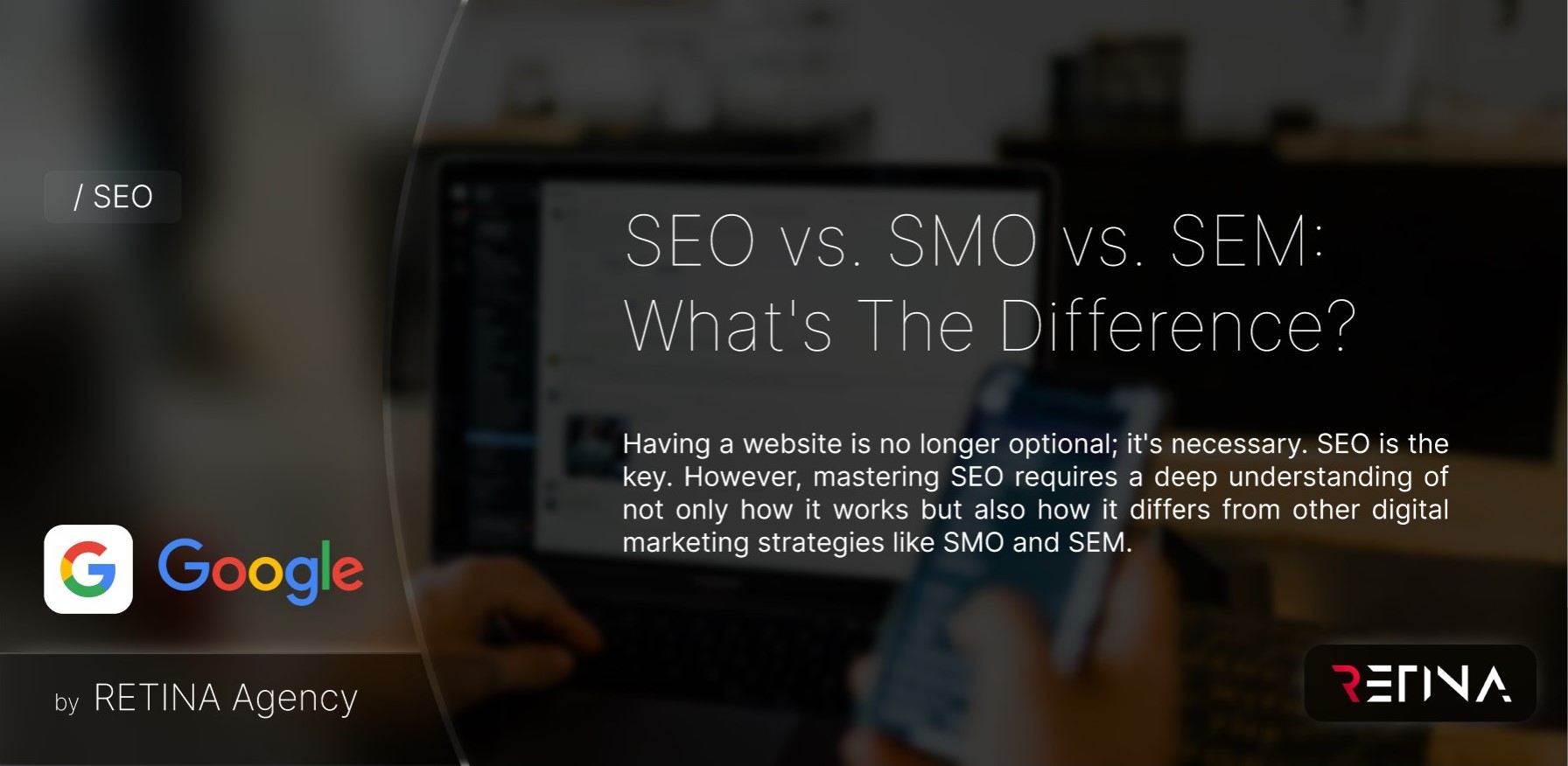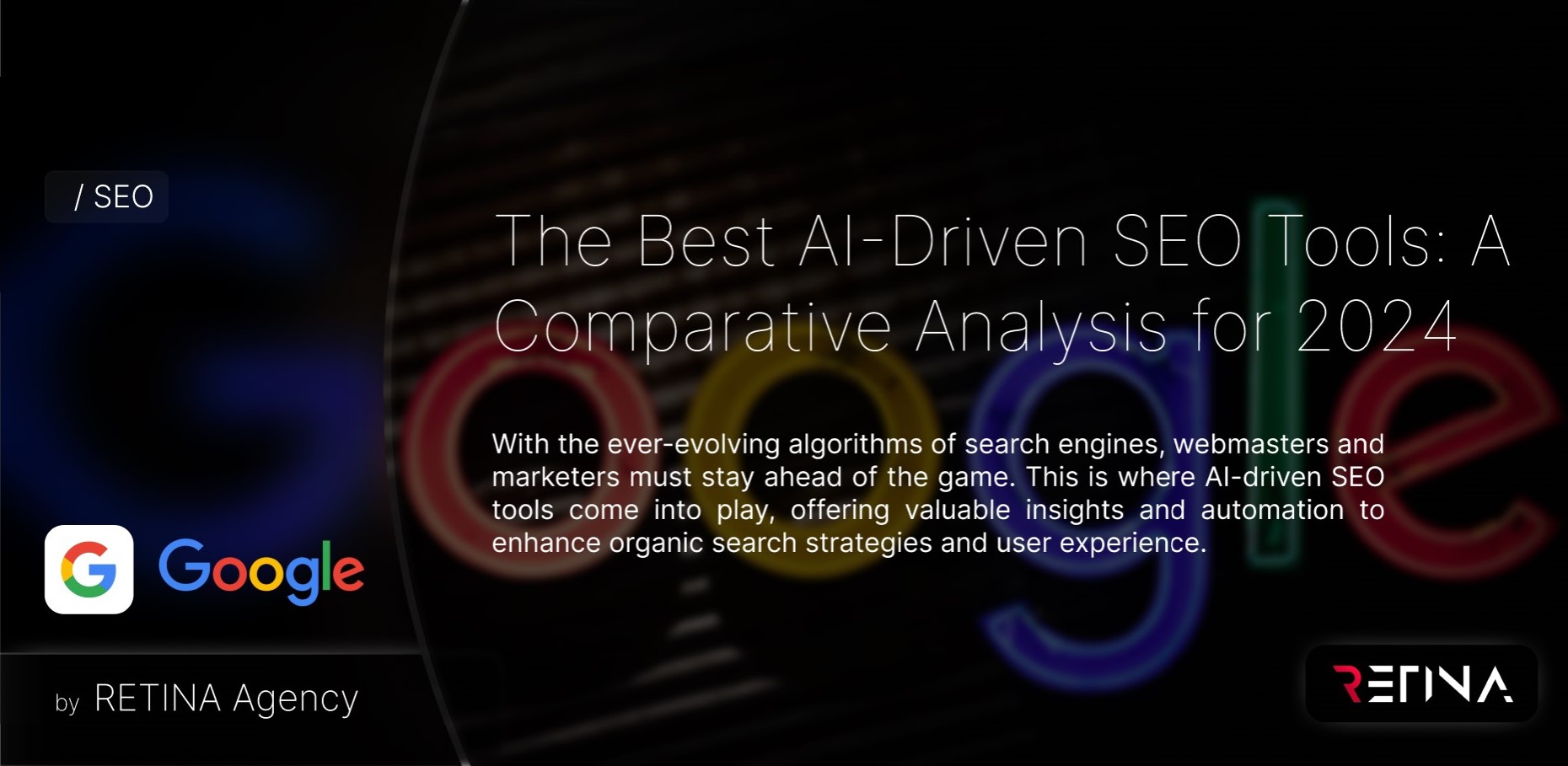If you are running a business, having a website is no longer optional; it’s necessary. And when it comes to making your website visible to your target audience, SEO is the key. However, mastering SEO requires a deep understanding of not only how it works but also how it differs from other digital marketing strategies like SMO and SEM. In this blog post, we will delve into the basics of SEO and its different components, including on-page and off-page strategies, technical aspects, and black hat practices to avoid. We’ll also discuss how to incorporate SEO, SMO, and SEM into your marketing plan and how to build a successful SEO strategy that drives results. Whether you’re managing your SEO in-house or outsourcing it to an agency, this post will equip you with the knowledge you need to optimize your online presence for optimal website performance.
Understanding the Basics of SEO
Improving online visibility is a critical aspect of any digital strategy. Vital for SEO, keywords are the foundation upon which solid strategies are built. Success in SEO is heavily reliant on the quality of content produced. Mobile optimization has become a key aspect of SEO due to the increasing use of mobile devices. Furthermore, a well-structured website plays a pivotal role in aiding search engine rankings, ensuring that your website ranks amongst the top search results and reaches its target audience.
How SEO Works: The Fundamentals
Understanding how search engine optimization (SEO) operates is essential for a successful online presence. It all starts with thorough keyword research to identify the most relevant and valuable terms for your target audience. Once these keywords are identified, content optimization comes into play, where these keywords are strategically integrated into your website’s content. Moreover, ensuring a seamless user experience on your website is crucial as it significantly influences search engine rankings. Internal linking within your website helps search engines understand the hierarchy and relevance of different pages, enhancing the overall SEO efforts. Additionally, website speed directly impacts how search engines rank your website, making it imperative to optimize for quick loading times, especially on mobile devices.
By integrating these fundamental aspects of SEO, websites can increase their visibility and organic results, thereby reaching their target audience effectively. This comprehensive approach aligns with the best practices and search algorithms established by search engines, positioning your website among the top results for relevant search queries.
How do SEO, SMO, and SEM differ from each other?
Digital marketing has several components, SEO, SMO, and SEM being the most vital. Although they have similar objectives, their purposes are quite different. SEO focuses on ranking higher in search results by optimizing website content and structure. SMO aims to engage social media users by creating shareable content. SEM involves advertising on search engines like Google and Bing to drive immediate traffic. Understanding these strategies is crucial when developing an effective marketing plan. Businesses can improve their online presence by using a combination of these tactics.
SEO: Enhancing Website Visibility
Enhancing a website’s visibility is the essence of SEO strategies, focusing on improving organic rankings and driving relevant traffic. Vital to optimizing web pages for search engine algorithms, keyword research is the cornerstone of effective SEO tactics. Technical optimizations, internal linking, and creating valuable, relevant content are integral components of successful SEO efforts. The ultimate goal is achieving higher visibility and a stronger positioning in search engine results, representing an enhanced user experience and increased relevant traffic. The success of SEO work is gauged by organic rankings, relevance to the target audience, and the overall user experience.
SMO: Boosting Social Media Engagement
Boosting social media engagement is a crucial aspect of SMO, focusing on cultivating a robust presence across various social platforms and encouraging active user participation. Content marketing plays a pivotal role in SMO endeavors, serving to stimulate social sharing and foster meaningful interaction with the audience. Additionally, SMO strategies encompass the utilization of user-generated content and the organization of engaging social media contests to enhance user engagement and brand visibility. The ultimate goal of SMO is to heighten brand recognition, drive traffic to the website, and cultivate a devoted following on social media platforms. Furthermore, leveraging social media analytics is imperative for assessing the efficacy and impact of SMO initiatives, allowing for informed decision-making and strategic adjustments to maximize results.
SEM: Paid Search Advertising
Paid search advertising, a crucial aspect of search engine marketing, involves targeting specific search terms to display ads in search engine results. It provides the capability for precise targeting, budget control, and performance tracking within SEM initiatives. By bidding on keywords and managing ad placements, businesses can maximize visibility and conversions, aiming to achieve immediate visibility and traffic through paid search results. The success of SEM is measured by conversion rates, ad relevancy, and return on ad spend (ROAS), making it essential for businesses to track these metrics closely to optimize their ROI.
How to incorporate all three into your marketing plan?
To successfully incorporate SEO, SMO, and SEM into your marketing plan, it’s important to understand their different goals and strategies. SEO focuses on enhancing website visibility through organic search results. SMO aims at boosting social media engagement and building a strong online presence. SEM involves paid search advertising to drive traffic and increase conversions. To create a cohesive plan, consider the specific objectives of each strategy and integrate them strategically for optimal results.
The Different Goals and Strategies of SEO, SMO, and SEM
Effective online presence hinges on distinct goals and strategies within SEO, SMO, and SEM. SEO is geared towards refining website visibility and rankings on search engines, while SMO concentrates on fostering social media engagement and brand recognition. SEM amalgamates SEO and SMO with paid advertising to maximize exposure and drive targeted traffic. Each strategy has its distinct goals, demanding a customized approach for optimal performance. A comprehensive marketing plan necessitates the integration of all three strategies, leveraging the synergy between search engine optimization, social media outreach, and paid advertising for unparalleled website performance and visibility. By harmonizing these strategies, businesses can address diverse user behaviors and preferences across multiple digital platforms, driving engagement and conversions to achieve overarching marketing goals.
Creating a Plan for Optimizing Online Presence
To optimize online presence, it’s vital to start by identifying target keywords and understanding search intent. Implement on-page SEO strategies such as optimizing meta tags, headers, and URLs with relevant keywords. Off-page tactics, like building links from authoritative sites, strengthen the website’s authority and relevance. Incorporating technical SEO elements, such as improving site speed and mobile responsiveness, enhances user experience and boosts organic rankings. Utilize tools like Google Search Console to analyze performance, identify opportunities, and address issues. Content marketing plays a crucial role in driving relevant traffic and securing organic rankings. By aligning strategies with the business’s overall goals and consistently monitoring performance, a comprehensive SEO plan can effectively enhance online visibility and relevance, ultimately reaching the target audience and driving organic traffic.
Building a Successful SEO Strategy
Successful SEO strategies encompass a variety of elements that contribute to higher search engine rankings and increased online visibility. Utilizing social media to support organic search results is crucial in modern digital marketing practices. Keyword research acts as the foundation for an informed and effective SEO strategy, enabling businesses to strategically target the right audience. Additionally, link-building remains a key factor in establishing authority and credibility in the eyes of search engines. When executed strategically, content marketing significantly enhances search engine rankings by providing valuable information to the target audience.
Furthermore, local business listings play a crucial role in impacting local search results, making them an essential component of any comprehensive SEO strategy. Incorporating these aspects into an integrated plan ensures a well-rounded approach that aligns with the algorithms and search intent of Google and other search engines, resulting in improved visibility and higher rankings in top search results.
Leveraging Social Media for SEO
Leveraging social media for search engine optimization involves utilizing various platforms to influence search engine rankings. Link building through social media supports SEO efforts by establishing connections and directing traffic to the website, contributing to improved visibility on search engine results pages. Additionally, creating engaging content on social media impacts SEO strategy, as user interaction and shares can enhance organic search results. It’s essential to recognize the significant impact social media shares can have on the visibility and ranking of web content. Moreover, Social Media Optimization (SMO) plays a key role in enhancing the user experience, which is a crucial aspect of SEO. By integrating SMO practices, businesses can effectively enhance their online presence and connect with their target audience in a meaningful way.
Diving Deeper: Key Components of SEO
Search engine optimization involves several key components that play a crucial role in determining a website’s ranking on search engine results pages. Understanding these components is essential for devising an effective SEO strategy.
One of the key components is on-page SEO, which includes optimizing the content and HTML source code of a page. This involves strategically integrating target keywords, improving the page’s topic relevance, and enhancing user experience. Off-page SEO tactics, on the other hand, focus on building the website’s authority through backlinks from reputable sources and social media engagement. Additionally, technical aspects such as website speed, mobile-friendliness, and structured data also significantly impact a site’s ranking. These components, when implemented using best practices and SEO tools, contribute to better visibility and higher organic results.
Understanding and effectively utilizing these key components are the first steps towards achieving top results in Google search. By aligning these components with the search algorithms and user search intent, websites can cater to their target audience more efficiently while also improving their chances of featuring in local results.
On-Page SEO Strategies
In the realm of search engine optimization, on-page strategies play a pivotal role in determining a page’s ranking within top results. Title tags and meta descriptions, when crafted skillfully, wield the power to influence search results significantly. The strategic placement of target keywords within the content is one of the best ways to signal the page’s topic to search algorithms and fulfill the search intent of Google users. Moreover, optimizing images with relevant attributes and descriptive filenames is considered one of the best practices for on-page SEO. Quality content that resonates with the target audience not only enhances user experience but also sends positive signals to search engines. Additionally, incorporating internal links to relevant pages within the website aids in establishing the page’s authority and providing valuable information to visitors, ultimately contributing to improved organic results.
Off-Page SEO Tactics
Enhancing search engine optimization through off-page tactics involves leveraging the authority of external websites to build quality backlinks. These backlinks play a crucial role in establishing the credibility and relevance of a website, ultimately impacting its rankings on search engine results pages. Additionally, an active presence on social media platforms is instrumental in influencing off-page SEO, as it contributes to brand visibility and engagement, thereby signaling to search algorithms the significance and popularity of the content. Furthermore, content marketing serves as a vital pillar of off-page SEO strategies, as high-quality, shareable content encourages natural link-building and fosters a strong online presence. By consistently implementing these best practices and staying attuned to search algorithms, websites can position themselves favorably to capture the attention of their target audience and secure top results on search engine queries.
Technical Aspects of SEO
A crucial aspect of search engine optimization involves the crawling and indexing processes, which play a vital role in ensuring that web pages are effectively discovered and ranked by search engines. Mobile optimization is another key element, significantly impacting the rankings of websites on search engine results pages, especially considering the increasing use of mobile devices for online searches. Furthermore, schema markup is an influential factor that directly affects how search engine results are displayed, making it an essential component to consider for improved visibility. Additionally, the utilization of XML sitemaps proves beneficial in aiding search engine algorithms to efficiently comprehend and index website content. Moreover, optimizing page speed is imperative as it directly impacts organic rankings, making it a critical factor in ensuring a high-ranking position within search results.
Avoiding Black Hat SEO Practices
When it comes to search engine optimization, it’s crucial to steer clear of black hat practices that could harm your website’s ranking and reputation. Understanding and abiding by ethical and organic SEO techniques is the foundation of a successful online presence. By avoiding manipulative tactics such as keyword stuffing, cloaking, and buying links, you can uphold the integrity of your website and ensure sustainable visibility in top search results.
Adhering to best practices and focusing on providing value to your target audience is the best way to align with search algorithms and cater to search intent. Utilizing reputable SEO tools, monitoring your site’s performance on Google Search Console, and optimizing for mobile devices are the first steps toward maintaining ethical SEO practices. Always remember that ethical SEO not only enhances your website’s visibility but also builds trust with Google users and contributes to the generation of organic results and local listings.
Common Black Hat SEO Techniques
Manipulating search rankings through keyword stuffing can have detrimental effects on a website’s visibility. Search algorithms are designed to penalize such practices, making it essential to focus on relevant and valuable content for improved search engine optimization. Additionally, cloaking techniques that mislead search engine algorithms by presenting different content to users than to search engines should be avoided at all costs. Paid links may seem like a quick fix for boosting rankings, but they violate search engine guidelines and can lead to severe consequences. Furthermore, incorporating hidden text within the website not only diminishes user experience but also negatively impacts search rankings. Lastly, the use of doorway pages to manipulate search results is considered a black hat SEO technique. It should be replaced with ethical and organic strategies for better long-term results.
Consequences of Using Black Hat SEO
Employing unethical SEO tactics can have severe repercussions for your website. Search engines like Google penalize websites that employ black hat SEO techniques to manipulate rankings. This can lead to a significant drop in search engine rankings and organic traffic, ultimately impacting the visibility of your website. Additionally, engaging in such practices can tarnish the reputation and user experience of your website, damaging the trust and credibility it has worked hard to build. Furthermore, black hat SEO can adversely affect your online presence and brand image, deterring potential visitors and customers. It’s vital to adhere to ethical and best practice SEO methods to maintain a solid online presence and avoid the negative consequences associated with black hat SEO.
Outsourcing SEO vs Managing In-house
Outsourcing SEO can be a cost-effective option for smaller businesses, while larger companies may find managing in-house more beneficial from a financial perspective. When it comes to expertise, an outsourced SEO team typically offers specialized knowledge and experience, whereas an in-house team may have a deeper understanding of the company’s objectives. Managing SEO internally provides more control over strategies and processes, while outsourcing allows for greater flexibility and decreased accountability. In terms of time management, outsourcing SEO liberates resources to focus on other business aspects, whereas managing in-house demands dedicated time and resources. Ultimately, the success of SEO relies on the quality of strategies and execution, regardless of whether it is outsourced or managed in-house.
Frequently Asked Questions
How can social media help with SEO efforts?
- Social media plays a crucial role in improving SEO efforts.
- By driving traffic to your website, sharing links, and engaging with your audience, social media can boost visibility, backlinks, and search engine rankings.
- Consistent branding and messaging on social media also enhance brand recognition and trust, indirectly benefiting SEO.
Is it necessary to make changes to the website for SEO?
Making changes to the website for SEO is essential. These changes involve optimizing content, structure, and design to improve visibility and ranking on search engine results pages. Regular updates and maintenance are crucial for optimal website performance and SEO.
Does it matter for SEO if my site is .com / .site /or any other?
The domain extension of your website doesn’t directly impact SEO. However, a country-specific extension can help with local SEO. Focus on choosing a relevant and memorable domain name, while prioritizing quality content and optimizing your website structure for better SEO performance.
What is local SEO, and when is it needed?
- Local SEO is the process of optimizing your website for local search results.
- It is essential when you have a physical location and want to attract customers from the surrounding area.
- By creating local business listings, optimizing for local keywords, and getting local reviews, you can increase visibility and drive more traffic.
Which is better for SEO, WWW or non-WWW?
From an SEO perspective, it doesn’t matter if you use WWW or non-WWW. The key is to choose one and be consistent across all pages. To avoid duplicate content issues, use canonical tags and redirect the non-preferred version to the preferred one for a better user experience.
Conclusion
In conclusion, mastering SEO is crucial for optimizing your website’s performance and driving organic traffic. Understanding the basics of SEO, as well as the differences between SEO, SMO, and SEM, will help you develop a comprehensive marketing plan. Incorporating all three into your strategy allows you to enhance website visibility, boost social media engagement, and leverage paid search advertising. Building a successful SEO strategy involves leveraging social media, implementing on-page and off-page SEO tactics, and considering technical aspects. However, it is important to avoid black hat SEO practices, as they can have severe consequences for your website’s reputation. Finally, decide whether to outsource SEO or manage it in-house based on your resources and expertise. By implementing these strategies and best practices, you can improve your website’s visibility, rankings, and overall performance in search engine results pages.
















